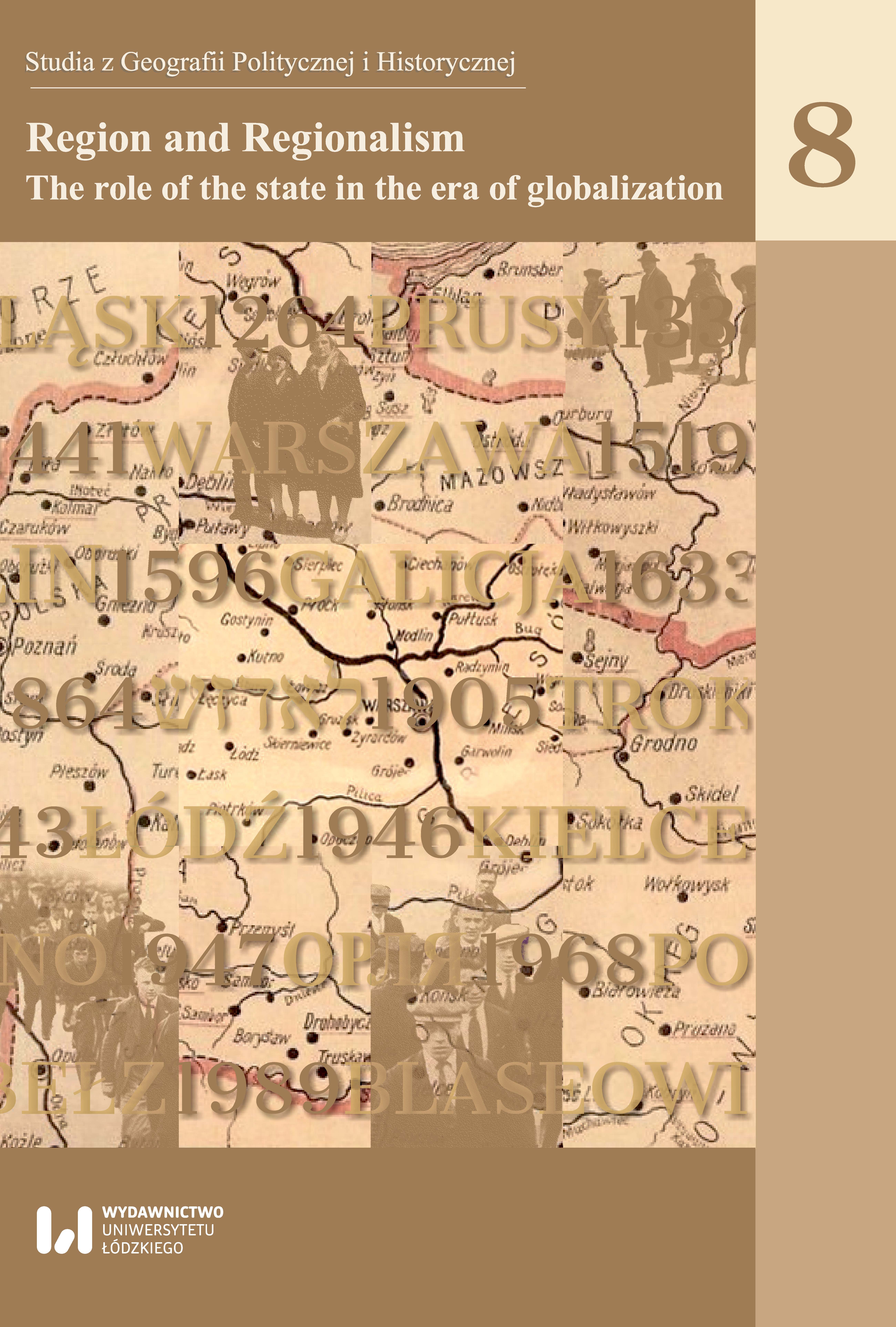NSZZ “Solidarity’s” notions for the state’s role in social life. Their social and political roots and status in 3rd Republic of Poland
DOI:
https://doi.org/10.18778/2300-0562.08.11Keywords:
ideals of “Solidarity”, workers’ demands, freedom, human dignity, communist government, regime, historic paradoxAbstract
The paper portrays the origins and ideological foundations of NSZZ “Solidarity” (Independent Self-governing Trade Union “Solidarity”) and their meaning in social life at the time of the communist regime in PRL (Polish People’s Republic). There are references to strikes (June ‘56 in Poznan, polish March ’68, June ’76, July ’80 in Lublin and Swidnica and August ’80) and, in 1980, the creation of Inter-Enterprise Strike Committee, which developed and published 21 demands aimed at the authorities. In the study, it is acknowledged that those demands are the ideological sources of Solidarity. The author of the text thinks that John Paul II sermons and encyclicals as well as Fr. Józef Tischner’s texts (published in the book Etyka solidarności oraz Homo sovieticus – Solidarity’s ethics and homo soviecticus) also had an influence on the formation of these ideas, which could bring back moral order, the rule of law, dignity and freedom for the society enslaved by Soviets. “Solidarity” also desired to improve the economic status of the country, particularly by ending the crisis. Those thoughts were, and are, beautiful; unfortunately, nowadays many of them exist only in the sphere of ideas or demands written in NSZZ Solidarity’s statute. Therefore, the article contains a sad conclusion, that in the 3rd Republic of Poland’s reality, “Solidarity’s” ideas are not attractive anymore. It happened because modern society is guided by consumerism and has become banausic. Trade union membership is not beneficial anymore, sometimes even being bothersome and seen as exceptional. That is why people, for the sake of keeping their jobs or other benefits, are leaving NSZZ “Solidarity”. Considering the ideas behind trade unions (especially the protection of worker’s affairs) – it is a peculiar paradox.
References
Czaczkowska E.K., 2009, Kardynał Wyszyński, Warszawa.
Google Scholar
Czaczkowska E.K., Wiścicki T., 2004, Ksiądz Jerzy Popiełuszko, Warszawa.
Google Scholar
Eisler J., (2000) 2012, Grudzień 1970. Geneza, przebieg, konsekwencje, Warszawa.
Google Scholar
Friszke A., 1994, Opozycja polityczna w PRL 1945–1980, Londyn.
Google Scholar
Friszke A., 2011, Czas KOR-u. Jacek Kuroń a geneza Solidarności, Kraków.
Google Scholar
Friszke A., 2014, Rewolucja Solidarności, Kraków.
Google Scholar
Friszke A. (ed.), 2006, Solidarity podziemna 1981–1989, Warszawa.
Google Scholar
Hemmerling Z., Nadolski M., 1991, Opozycja wobec rządów komunistycznych w Polsce 1956–1976. Wybór dokumentów, Warszawa.
Google Scholar
Hemmerling Z., Nadolski M., 1994, Opozycja demokratyczna w Polsce 1976–1980. Wybór dokumentów, Warszawa.
Google Scholar
Jan Paweł II, 1981, Laborem exercens, Rzym.
Google Scholar
Kerski B., Knoch K., 2015, Europejskie Centrum Solidarności. Przewodnik po wystawie stałej, Gdańsk.
Google Scholar
Kostecki W., Wojciechowska-Łysek I., 1983, Czynniki ideologiczno-polityczne, [in:] Pastusiak L. (ed.), Co zakłóca współżycie międzynarodowe, Warszawa.
Google Scholar
Kubasiewicz-Houée E., 2007, Bez prawa powrotu, Wrocław.
Google Scholar
Kuroń J., 1984, Polityka i odpowiedzialność, Londyn.
Google Scholar
Kuroń J., 1991, Gwiezdny czas, Londyn.
Google Scholar
Kuroń J., 2010, Opozycja. Pisma polityczne 1969–1989, Warszawa.
Google Scholar
Łoś-Nowak T., 1989, Konflikty w płaszczyźnie międzynarodowej, [in:] Pasierb B. (ed.), Sprzeczności i konflikty społeczne oraz ich skutki polityczne, Warszawa.
Google Scholar
Majchrzak G., Owsiński J.M. (eds.), 2011, I Krajowy Zjazd Delegatów NSZZ “Solidarity”, t.1, Warszawa.
Google Scholar
Marciniak R., 2010, Między Gdańskiem a Szczecinem. Grudzień ’70 w województwie koszalińskim, [in:] Kowalewski M., Krasucki E., Miedziński P. (eds.), Historia, miasto, pamięć: Grudzień ’70 – Styczeń ’71 (perspektywa szczecińska), Szczecin.
Google Scholar
Marecki J., Grądzka-Rejak M. (eds.), 2016, “Bić takiego wroga jak kler”. Osoby duchowne i zakonne w miejscach odosobnienia za żelazną kurtyną, Kraków.
Google Scholar
Marek Ł., 2017, “Niezłomni” wobec władzy komunistycznej. Przegląd postaw wybranych biskupów polskich, [in:] Rotter L., Giza A. (eds.), Krajobraz i dziedzictwo kulturowe Europy. Sacrum – profanum, Kraków.
Google Scholar
Mielecki J., 1989, Podobizna i różnice kryzysów politycznych: w Czechosłowacji z lat 1967/68 i w Polsce lat osiemdziesiątych, [in:] Pasierb B. (ed.), Sprzeczności i konflikty społeczne oraz ich skutki polityczne, Warszawa.
Google Scholar
Norwid C.K., 1990, Fortepian Szopena, [in:] Norwid C.K., Vademecum, oprac. J. Fert, BN I 271, Wrocław.
Google Scholar
Pastusiak L., 1983, Sprzeczności ideologiczne a współżycie międzynarodowe, “Sprawy Międzynarodowe”, 1.
Google Scholar
Paszkiewicz K.A., 2004, Partie i koalicje polityczne III Rzeczypospolitej, Wrocław.
Google Scholar
Pietraś Z.J., 1989, Sprzeczności i konflikty wewnątrzpaństwowe i ich skutki międzynarodowe, [in:] Pasierb B. (ed.), Sprzeczności i konflikty społeczne oraz ich skutki polityczne, Warszawa.
Google Scholar
Romanow Z., 2015, Przebieg kryzysu społecznego i politycznego w Słupsku w grudniu 1970 i styczniu 1971 r., “Scripta Historica”, 21.
Google Scholar
Sandecki M., Wąs M., 2010, Duda za Śniadka?, “Gazeta Wyborcza”, 24.08.2010.
Google Scholar
Stefanowicz J., 1989, Sprzeczności między Wschodem a Zachodem oraz ich skutki międzynarodowe, [in:] Pasierb B. (ed.), Sprzeczności i konflikty społeczne oraz ich skutki polityczne, Warszawa.
Google Scholar
Tischner J., 1992, Etyka solidarności oraz Homo sovieticus, Kraków.
Google Scholar
Wąs M., 2010, Nie ma już Solidarności. Rozmowa z Jerzym Borowczakiem, “Gazeta Wyborcza”, 20.08.2010.
Google Scholar
Wołoszański B., 2017, Wiek krwi, Kraków.
Google Scholar
https://nowahistoria.interia.pl/kartka-z-kalendarza/news-8-wrzesnia-1981-r-poslanie-i-zjazdu-delegatow-nszz-solidarno,nId,1496417
Google Scholar
Downloads
Published
How to Cite
Issue
Section
License

This work is licensed under a Creative Commons Attribution-NonCommercial-NoDerivatives 4.0 International License.








